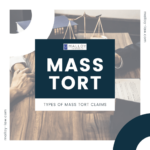A tort lawyer is a legal professional who specializes in personal injury cases. They represent individuals who have been injured due to the negligence or wrongdoing of another person or entity. Tort lawyers are knowledgeable in the areas of personal injury law, including negligence, product liability, and medical malpractice.
Tort lawyers work to obtain compensation for their clients’ injuries, which may include damages for lost wages, medical expenses, pain and suffering, and emotional distress. They are skilled in negotiation and litigation, and they are committed to helping their clients obtain justice.
Here are some of the key responsibilities of a tort lawyer:
* Investigating their client’s case and gathering evidence
* Negotiating with insurance companies on behalf of their client
* Filing lawsuits and representing their client in court
* Preparing their client for trial and presenting their case to a jury
If you have been injured due to the negligence of another person or entity, you should contact a tort lawyer to discuss your legal options. A tort lawyer can help you get the compensation you deserve for your injuries.
What is a Tort Lawyer?






Have you ever been wronged by someone else’s negligence or intentional acts? If so, you may have considered seeking legal representation from a tort lawyer. A tort lawyer is a legal professional who specializes in representing clients who have been wronged by the negligent or intentional acts of another person or entity. Tort law is a branch of civil law that deals with civil wrongs, also known as torts. Torts can include a wide range of actions, such as negligence, defamation, assault, battery, and wrongful death. Tort lawyers help their clients seek compensation for damages caused by the wrongful actions of others.
What Does a Tort Lawyer Do?
Tort lawyers provide a variety of services to their clients, including:
Tort lawyers must have a strong understanding of tort law and civil procedure. They must also be skilled negotiators and litigators. Tort lawyers typically work on a contingency fee basis, which means that they only get paid if they win your case. This can make it easier for people who have been wronged to afford legal representation.
When Should I Hire a Tort Lawyer?
If you have been wronged by the negligent or intentional acts of another person or entity, you should consider hiring a tort lawyer. A tort lawyer can help you get the compensation you deserve for your injuries or losses. Tort lawyers can handle a wide range of cases, including:
If you are unsure whether you have a valid tort claim, you should consult with a tort lawyer. A tort lawyer can review your case and advise you on your legal options. Tort lawyers offer free consultations, so there is no risk in contacting one to discuss your case.
What is a tort lawyer?
Tort lawyers help victims of negligence and other civil wrongs obtain compensation for their injuries and losses. They specialize in representing individuals who have suffered physical, financial, or emotional harm due to the wrongful acts of others. Tort cases can involve a wide range of incidents, including car accidents, medical malpractice, product defects, and workplace injuries.
Duties of a Tort Lawyer
Responsibilities
Tort lawyers assume several critical responsibilities in pursuing justice for their clients. Their duties may involve the following:
Conducting Investigations
To build a strong case, tort lawyers thoroughly investigate the circumstances surrounding the incident that led to their client’s injuries. They gather evidence, interview witnesses, and consult with experts to determine the cause of the accident or harm and identify the liable party.
Determining Liability
Once the facts of the case have been established, tort lawyers must determine whether a tort, or civil wrong, has occurred. They analyze the applicable laws and legal precedents to assess if the defendant breached their duty of care, causing harm to the plaintiff. This involves identifying the legal elements of the tort and proving that the defendant’s actions or omissions met those elements.
Negotiating Settlements
In many cases, tort lawyers strive to resolve disputes without going to trial. They engage in negotiations with the defendant’s insurance company or legal counsel to reach a settlement that fairly compensates their client for their injuries and losses. Settlement negotiations require a keen understanding of the legal issues involved, as well as strong negotiation skills.
Representing Clients in Court
If settlement negotiations are unsuccessful, tort lawyers are prepared to represent their clients in court. They present evidence, examine witnesses, and make legal arguments in an effort to prove the defendant’s liability and obtain a favorable verdict for their client. Tort lawyers must be skilled litigators, possessing a deep understanding of trial procedure and the rules of evidence.
Advocating for Victims
Above all, tort lawyers serve as advocates for victims of negligence and other civil wrongs. They work tirelessly to protect their clients’ rights and ensure that they receive the justice they deserve. Tort lawyers are passionate about helping those who have been wronged, and they play a vital role in upholding the rule of law and protecting the rights of individuals.
What is a Tort Lawyer?
If you’ve ever been wronged by another person or company, you may have considered taking legal action. And if you have, you’ve likely come across the term "tort lawyer." But what exactly is a tort lawyer, and what do they do?
Types of Torts
So, what exactly is a tort? A tort is a civil wrong that gives rise to a legal obligation to pay damages. Torts can be divided into two main categories: intentional torts and unintentional torts.
Intentional Torts
Intentional torts are those in which the defendant acted with the intent to cause harm. Some common examples of intentional torts include:
- Assault
- Battery
- False imprisonment
- Defamation
Unintentional Torts
Unintentional torts are those in which the defendant acted negligently or recklessly. Some common examples of unintentional torts include:
- Car accidents
- Medical malpractice
- Slip-and-fall accidents
- Product liability
If you believe you have been the victim of a tort, it’s important to speak to a tort lawyer to discuss your legal options. A tort lawyer can help you understand your rights, file a lawsuit, and get you the compensation you deserve.
Who is a Tort Lawyer?
Tort lawyers are attorneys who specialize in representing victims of personal injury, wrongful death, and other civil wrongs. They help their clients recover compensation for their losses, including medical expenses, lost wages, pain and suffering, and emotional distress.
Tort lawyers must be well-versed in the complex laws governing personal injury and wrongful death cases. They must also be able to effectively negotiate with insurance companies and defense attorneys to obtain the best possible outcome for their clients.
Tort lawyers play an important role in ensuring that victims of civil wrongs are able to obtain justice and compensation for their injuries. They help to level the playing field between victims and wrongdoers, and they work tirelessly to protect the rights of their clients.
Compensation for Tort Victims
Tort victims may be entitled to compensation for their injuries, including medical expenses, lost wages, pain and suffering, and emotional distress. The amount of compensation awarded will depend on the severity of the injuries and the extent of the defendant’s liability.
Medical expenses are the costs associated with treating the victim’s injuries. This can include the costs of hospitalization, surgery, medication, and rehabilitation.
Lost wages are the wages the victim would have earned if they had not been injured. This can include both past and future lost wages.
Pain and suffering is a legal term that refers to the physical and emotional distress caused by the victim’s injuries. This can include pain, discomfort, disfigurement, and loss of enjoyment of life.
Emotional distress is a legal term that refers to the mental anguish caused by the victim’s injuries. This can include anxiety, depression, and post-traumatic stress disorder.
The amount of compensation awarded for pain and suffering and emotional distress is typically determined by a jury. Juries consider a variety of factors when awarding damages for these types of injuries, including the severity of the injuries, the victim’s age and life expectancy, and the impact of the injuries on the victim’s life.
Punitive damages may also be awarded in some cases. Punitive damages are intended to punish the defendant for their wrongdoing and to deter others from committing similar acts. Punitive damages are typically awarded in cases where the defendant’s conduct was particularly egregious or reckless.